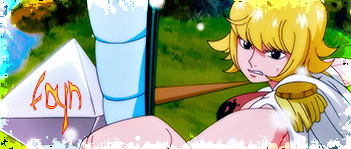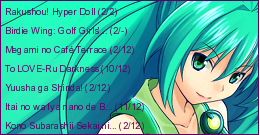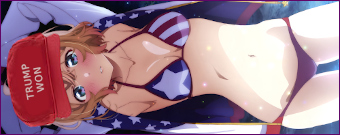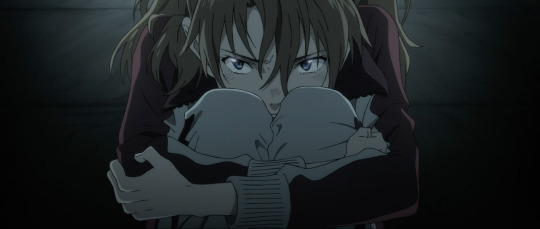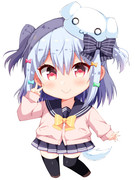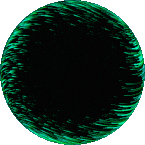glassknuckles said:hmm, what to say about Geneshaft
It does a lot of things I like, but who lives and who dies seems forced and arbitrary for the sake of creating drama. It does create character development in Beatrice, who was best girl. Beatrice's character development is driven by killing off Mario and Sofia, which wouldn't be a complaint except that these deaths felt forced; eg. Jean shouldn't exist, I don't why Sofia died.
It seems pretty unlikely in a 1:9 m to f society Amigiwa would have a 20th century Japanese family structure with a father, but I guess he was a "special" member of society, unlike Mika.
I can't really fault the character arcs, despite being somewhat underwhelmed with this anime. There's a nice intertwining of Amigiwa and Mika's pasts through the shuttle accident, in which Amigiwa tracks Mika down for the mission to fulfill Ryoko's wish, and he already had some belief in Mika's untapped potential while the accident convinced him he did not have the skills society said he did. I think it's more accurate to say Amigiwa exits the coma less with his own issues resolved than with a stronger faith in Mika as an unknown potential, or miracle, since the foundational myth of perfect DNA has been shattered by his experiences.
The theme of perfect DNA isn't executed as well with Sergei, who remains too much of cipher to understand. Was the Sergei that Mir remembered apparently a duplicate that had been executed before this Sergei existed? I'm also prejudiced against omnicidal maniac villain types, so in this case I din't find much reason for Sergei to come to the conclusion humanity was a bug...he could've come to opposite conclusion just as easily afaik- that the Giants and Oberus were inferior since one is extinct and the other is dumb computer that gets confused by the Bilkis.
The "perfect" Mir was a true idiot the entire anime, a complete egotistical ass, which makes complete sense given who she was and her backstory, so in this case a lack of character growth was the right decision lol.
It's unfortunate that it seemed that some characters received development only before their imminent demise (Remy, Mario). Tiki remained underutilized the entire anime, I don't think she even did any missions. Sofia and Dolce didn't have any character arc. This may have needed more episodes.
The storyline involving the Council of Elders is totally dropped, after we last see them clucking about terrorists while explosions go off. The message about human potential over limits is not uncommon in anime, but I liked it here where it was juxtaposed as part of nature-nurture conversation. Back in the late 1990s and 200s DNA was having a moment as "A Really Big Deal with Implications," but almost 20 years later there is no cyberpunk DNA modding-but the backstory detail concerning climate change is quite terrifying.
I loved the aesthetic, the framing of planets and the sci-fi references. The rings are of course kinda analogous to
2001's monoliths, as is the the spinning space station and the importance of Jupiter and its moons, and similar to
2010, ends with the transformation of a Jovian moon. It's weighed down early on by feeling incomprehensible, with references to unknown bureaucracies and meaningless bureaucratic talk that only makes sense to the people who wrote the damn script! Sadly, a not uncommon fault in SF and mecha anime, but I had to resort to the DVD liner notes!
On a personal note, the fact this society is not really a true matriarchy is a bit disappointing. There isn't any attention paid to exploring gender despite the odd gender setting that produces an army of women. Here, I thought this would be a femdom society, but that's contradicted at several points that suggest more of a cultural feminist view where men have more power in certain areas and not so much in others. For example, Mika takes it as a fact of nature Amigiwa is fit for command because he is male in episode 6, so the few women commanders we see on screen might be exceptions. Yet women commanders seem able to order a Registrar to shoot a man who makes a 'false move,' as seen in episode 1.
So I dunno what's going on ¯\_(ツ)_/¯
It's not really a bad anime, but it's bad aspects that drag it down are more jarring as a result of what it does right. Ultimately, I think that Geneshaft has a lot going for it, but it falls a bit short of its potential.
nah you over thinking, this anime isnt that deep. This anime wanted to be genuine so there is a lots of women because men are aggressors so they decrease their numbers but they did evolve to be leaders so they keep some around, not that deep. 